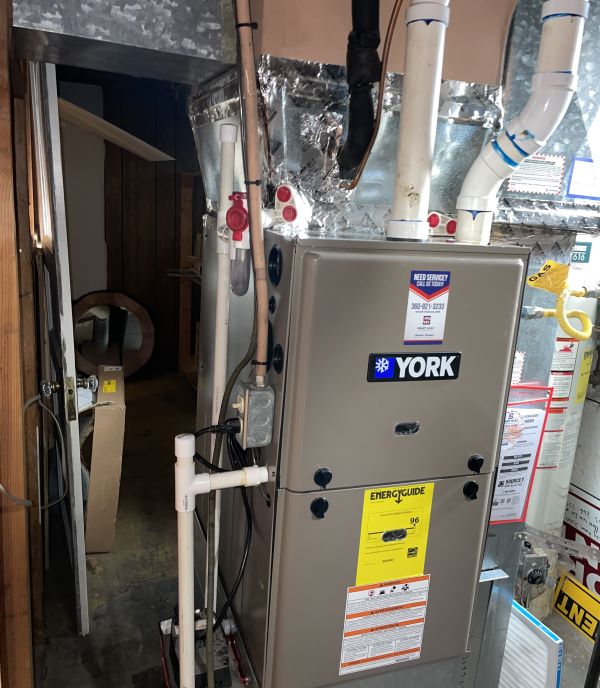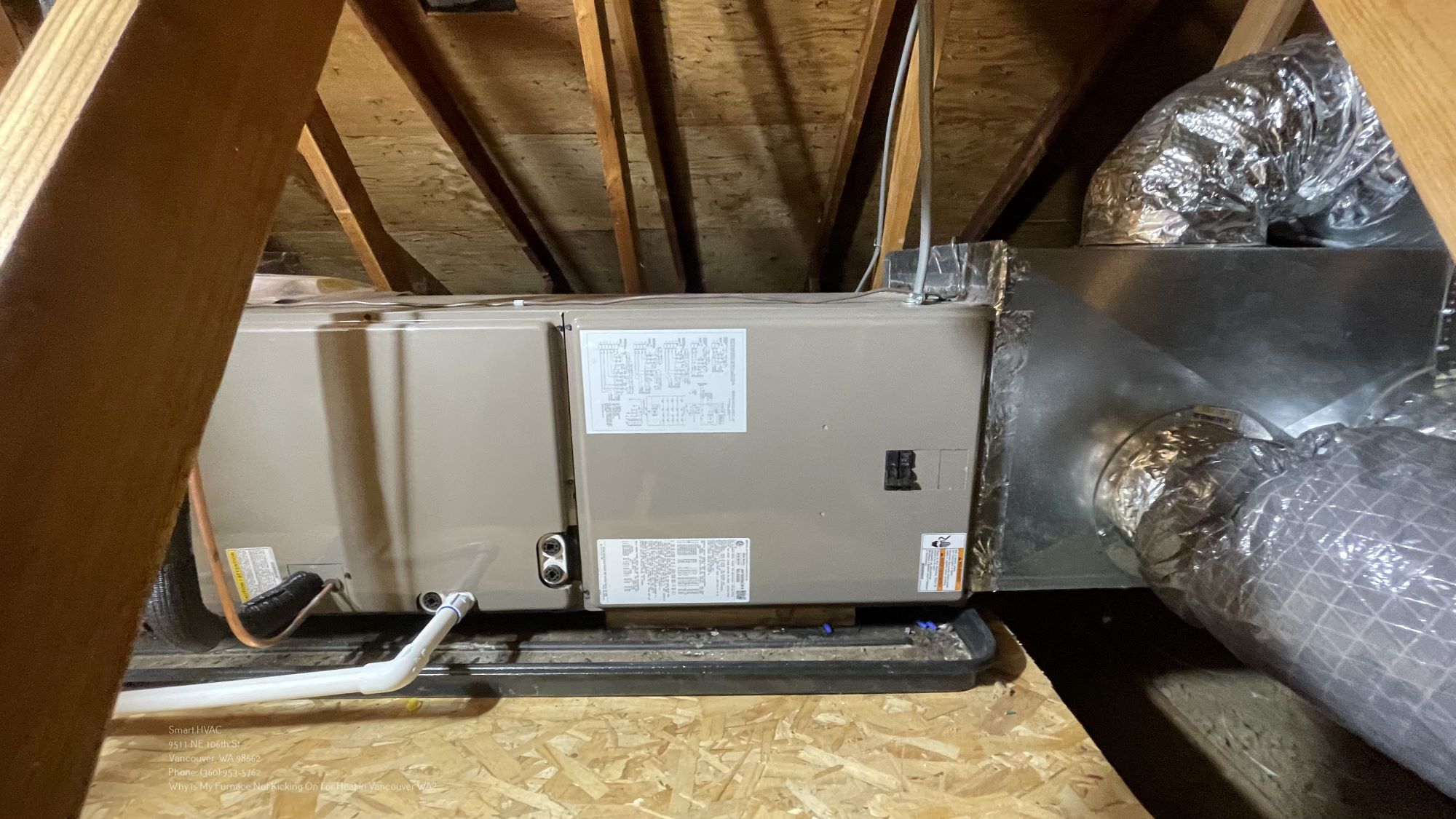Understanding Why Your Furnace Isn’t Starting
When the chill of the colder months settles over Vancouver, WA, a functioning furnace is essential for maintaining a comfortable and safe home. If your heating system suddenly fails to ignite, leaving you in the cold, it can be a frustrating and concerning experience. At Smart HVAC, we understand the urgency of reliable heating, and our expert technicians specialize in prompt and effective furnace repair in Vancouver, WA, to restore warmth to your home. This guide will explore the common reasons why your furnace might not be kicking on and what steps you can take to address these potential issues.
Decoding the Silence: Common Reasons for a Furnace Not Starting
A furnace that refuses to turn on can stem from a variety of underlying problems, ranging from simple fixes to more complex mechanical failures. Understanding these common causes can help you troubleshoot basic issues and provide valuable information to your furnace repair technicians at Smart HVAC.
Thermostat Troubles:
Often, the simplest culprit, an incorrectly set or malfunctioning thermostat, can prevent your furnace from receiving the signal to turn on. Ensure your thermostat is set to “heat,” the temperature is higher than the current room temperature, and the batteries (if applicable) are functioning correctly.
Power Supply Interruption:
Your furnace needs electrical power to operate. Check your home’s circuit breaker panel to see if the breaker for the furnace has tripped. Resetting it might solve the problem. Also, ensure the furnace’s power switch (usually located on or near the unit) is in the “on” position.
Pilot Light or Ignition Issues (for Gas Furnaces):
Older gas furnaces rely on a pilot light to ignite the burner. If the pilot light has gone out, the furnace won’t produce heat. Newer gas furnaces use electronic ignition systems, which can sometimes fail due to a dirty flame sensor or other electrical potential issues.
Dirty Air Filters:
A clogged air filter restricts airflow, forcing your furnace to work harder and potentially overheat. This can trigger safety switches that shut down the unit. Regularly replacing your air filters is crucial for both energy efficiency and preventing system malfunctions.
Safety Switch Tripped:
Furnaces are equipped with various safety switches to prevent hazards like overheating or gas leaks. These switches can sometimes trip due to airflow problems, excessive heat, or other common issues. Identifying and resetting the specific tripped switch might restore functionality, but it’s essential to determine the underlying cause to prevent recurrence.
Gas Supply Problems (for Gas Furnaces):
If you have a gas furnace, ensure the gas valve leading to the unit is open. If other gas appliances in your home are also not working, there might be a broader gas supply issue requiring attention from your gas provider.
Blower Motor Malfunction:
The blower motor circulates heated air throughout your home. If it fails, the furnace might ignite, but you won’t feel any warm air. Unusual or strange noises coming from the furnace could indicate a problem with the blower motor.
Limit Switch Failure:
The limit switch protects your furnace from overheating. If it malfunctions, it might prematurely shut off the furnace or prevent it from turning on at all.
Condensate Drain Issues (for High-Efficiency Furnaces):
High-efficiency furnaces produce condensation that needs to drain properly. A clogged condensate drain can trigger a safety switch, preventing the furnace from starting.
Faulty Wiring or Electrical Components:
Damaged wiring, loose connections, or a failing capacitor can disrupt the electrical flow necessary for the furnace to operate. These issues often require the expertise of qualified furnace repair technicians.
The Importance of Addressing Furnace Issues Promptly
Ignoring the signs that your furnace isn’t working correctly can lead to more significant problems down the line, resulting in costly repairs and a greater risk of a complete system breakdown during the coldest times of the year. Addressing minor issues early can save you time, money, and discomfort. Furthermore, an inefficiently operating furnace can lead to increased energy costs and a reduced level of indoor comfort. Regular attention and timely furnace repairs by Smart HVAC help ensure efficient heating and prolong the lifespan of your heating systems.
Do You Need Furnace Repair Service?
Don’t wait—schedule your furnace repair with Smart HVAC today!!
Proactive Steps: Maintaining Your Furnace for Reliable Performance

Preventive maintenance is the cornerstone of a reliable and efficient heating system. Regular furnace maintenance by the professionals at Smart HVAC can identify and address potential issues before they escalate into major problems. Our comprehensive tune-ups include:
- Thorough Inspections: Our experienced technicians will carefully inspect all components of your furnace, checking for wear and tear, leaks, and damage.
- Filter Replacement: We will replace dirty air filters to ensure optimal airflow and system efficiency.
- Cleaning Key Components: Dust and debris can accumulate and hinder furnace performance. We will clean burners, heat exchangers, and other critical parts.
- Testing Safety Controls: We will verify that all safety switches and controls are functioning correctly to ensure safe operation.
- Checking Electrical Connections: Loose or corroded electrical connections can cause malfunctions. We will inspect and tighten connections as needed.
- Thermostat Calibration: Ensuring your thermostat is accurately reading and controlling the temperature is vital for consistent heat and energy efficiency.
Investing in regular heating system maintenance with Smart HVAC not only helps prevent unexpected breakdowns but also improves energy efficiency, potentially lowering your energy bills and extending the life of your furnace.
When to Call the Experts at Smart HVAC
While some basic troubleshooting steps can be helpful, certain furnace issues require the expertise of qualified professionals. Contact Smart HVAC for furnace repair in Vancouver, WA, if you experience any of the following:
- Persistent lack of heat after basic troubleshooting.
- Strange noises such as banging, rattling, or squealing.
- The smell of gas. If you suspect a gas leak, immediately turn off the gas supply and evacuate your home before calling us and your gas provider.
- Frequent cycling on and off without reaching the set temperature.
- A yellow or flickering pilot light (for older gas furnaces), which can indicate a carbon monoxide issue.
- Any signs of electrical issues, such as burning smells or sparks.
Our skilled technicians at Smart HVAC have the advanced tools and knowledge to accurately diagnose and resolve even the most complex furnace problems. We are committed to providing exceptional service and effective solutions to ensure your home remains warm and comfortable throughout the colder months. As a trusted provider of furnace repair services in Clark County, we prioritize your safety and comfort.
Ensuring Your Home Stays Warm with Smart HVAC
A malfunctioning furnace can disrupt your comfort and pose safety concerns. By understanding the common reasons why your furnace might not be kicking on and taking proactive steps through regular maintenance, you can minimize the risk of unexpected breakdowns. When you need reliable furnace repair in Vancouver, WA, you can count on the experienced technicians at Smart HVAC to provide prompt, professional, and dependable service. We are dedicated to ensuring your heating systems operate efficiently and effectively, keeping your home warm and comfortable. Stay comfortable, stay smart with Smart HVAC.
Do You Need Furnace Repair Service?
Don’t wait—schedule your furnace repair with Smart HVAC today!!


